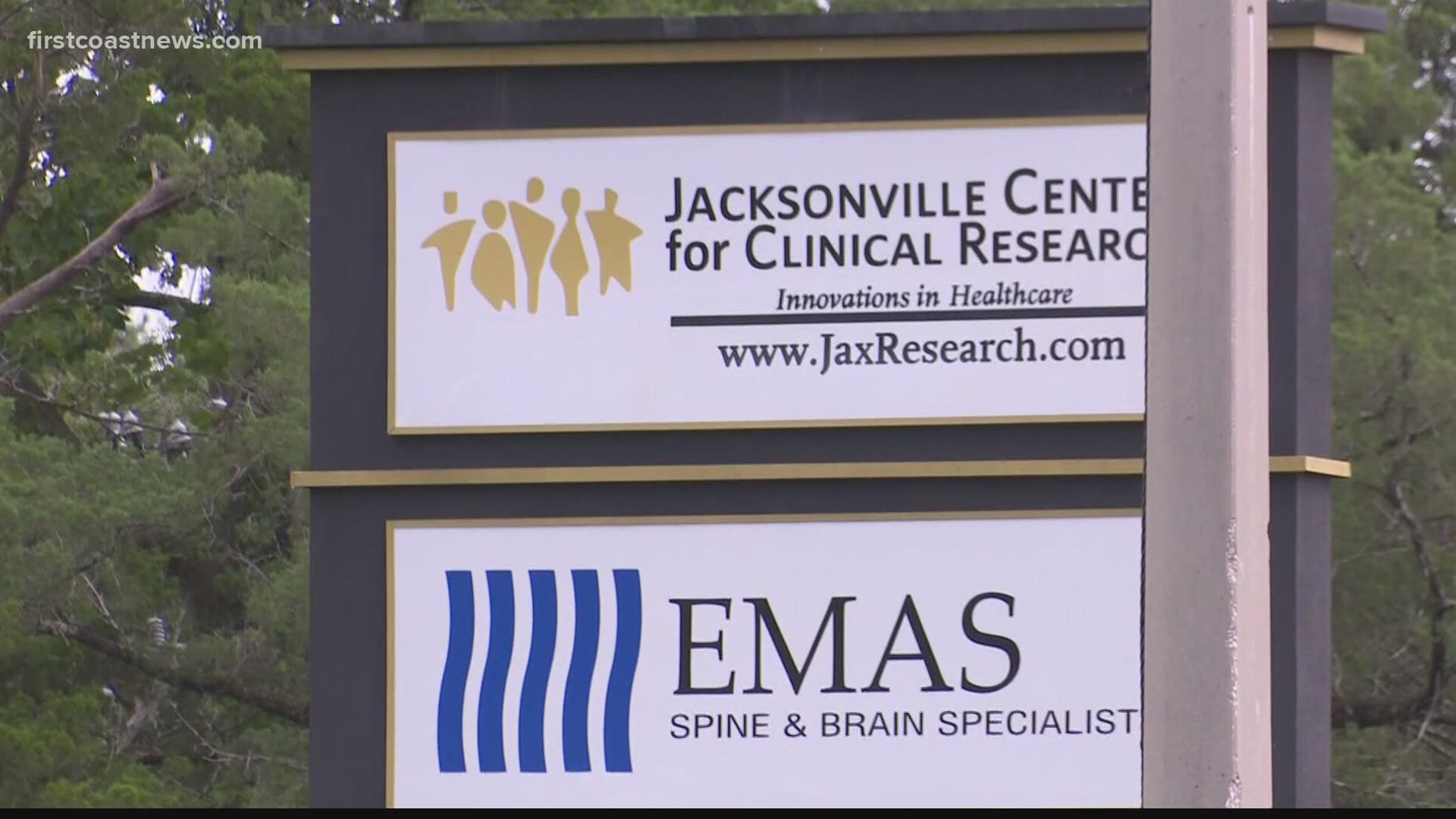JACKSONVILLE, Fla. — Orlando Casanova walked out of the Regency vaccine site Monday eager to share he and his wife had just gotten their second doses of the COVID-19 vaccine.
"We're going out to eat," Casanova said.
Casanova said some of his friends are more hesitant to get the shot, though.
"They weren’t really sure how the medicine would affect them later on down the road, but like I told them, I said, 'You know, if you don’t get the shot, you could possibly die,'" Casanova said. "I just think that they should very much consider it."
Psychologist Dr. Tracy Alloway said simply the science isn't enough to convince some to get the vaccine.
"When it comes to something so personal like this, when it affects us, we use a different part of the brain," Alloway said. "When we're making these decisions, we use a part of the brain that's very closely associated with our identity, our sense of self.”
She said because of this, doctors and scientists may need to try another approach, other than with facts and the science, to persuade someone who isn't interested in getting vaccinated.
"For someone who believes that their decision is part of their identity, that [science] doesn't matter. They will say, 'Well, maybe you're making that up.' Or, 'How does that affect me?'" Alloway said.
"I think a better way to reframe that is to put that sense of agency or control back with them, and say, 'you can decide when you'd like to get the vaccine and where you'd like to take the vaccine. Also, you decide the value the vaccine is having for you socially, professionally, personally and all these things,'" Alloway explained.
Dr. Michael Koren, who heads up vaccine trials at the Jacksonville Center for Clinical Research, said he has seen people of all backgrounds back away from getting the shot.
"There are the people that feel that maybe the government wasn't careful enough at allowing these vaccines to get out into the general community," Koren said. "So, they don't trust that they're safe, and that's a concern."
"There's some people that feel that the government 'shouldn't be telling me what to do,' and that's the reason they don't want to take the vaccines," he continued.
Koren has been involved in getting 1,300 people vaccinated and hasn't seen any severe side effects. He maintains his confidence in the shot.
"The vaccine is remarkably effective. Basically, what this comes down to for the individual is do you want to take your risk of getting infected by COVID, which can be really, really nasty and completely unpredictable, including long term side effects," Koren said. "Or, work with a vaccine, which is very, very focused, to just get your immune system to recognize the virus and protect you from the virus."
Alloway said another reason some people could be hesitant to get the shot is the lack of confidence in leaders.
According to a PBS NewsHour, NPR and Marist poll released last week, 49% of Republican men said they won't get vaccinated. Forty-seven percent of those who supported former President Donald Trump in 2020 said they won't get vaccinated.
Trump got the vaccine in January. He told a crowd at the Conservative Political Action Conference in February, "So, everybody go get your shot."
Tuesday, when he was asked in a Fox News interview if he would recommend his supporters get the vaccine, Trump said he would recommend it.
He continued by saying Americans have freedoms, but that it is a "great [...] safe vaccine."
Like Koren, however, Alloway said someone's willingness to get the shot or not get it doesn't fall always on a party line.
"Regardless of which party, it's kind of this Goldilocks effect," Alloway explained. "If you're overly optimistic, they feel like they're hiding something. If you're overly pessimistic, it's this idea of confirmation bias that they're saying, 'Oh, look, you know, we knew it. We knew all along. There's something wrong.'"
She said this is why it can have a positive impact when people see people they look up to, like celebrities, professional athletes, or former presidents getting vaccinated. All former Presidents, other than Trump, Jimmy Carter, Bill Clinton, George W. Bush and Barrack Obama and their wives got the vaccine in a PSA released last week.
"Subconsciously, we're thinking, 'Well, if they're doing that and they're comfortable and confident doing that [...]' It kind of makes us feel more comfortable for ourselves as well," Alloway said.
Koren said it's important to reassure people that the vaccines are safe.
"Most importantly, they actually protect both the individual and the society at large. We have never been able to do anything like this in medicine before. It is really a tour de force, an amazing accomplishment," Koren said.
Koren said about 50% of people in Florida have either had the virus, or have gotten the vaccine. He thinks by April we could reach herd immunity, which is about 70% to 90% of the population are in immune status.

